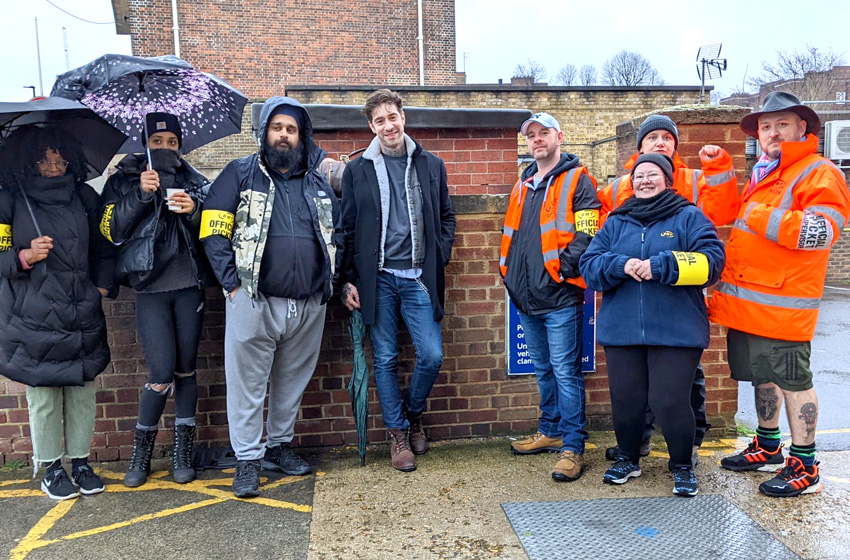10,000 TUBE workers took strike action yesterday after London Underground (LU) bosses refused to rule out job cuts and detrimental changes to pensions.
Under the plans at the heart of the dispute, LU will cut 600 frontline jobs for starters and wants to scrap the final salary pension scheme in a bid to drive down costs.
The RMT transport union has called for Mayor of London Sadiq Khan to keep promises he made to LU workers.
He told Labour Party members last year: ‘Telling those people responsible for heroically keeping London moving throughout the pandemic that now is the time they need to pay more into their pension funds strikes me as neither fair nor reasonable. It is not their fault the pandemic struck and they have acted heroically.’
The union also pointed out that in May last year, the Mayor also said that it would be ‘ill judged’ to rush through pension changes, warning that it could lead to an industrial dispute.
Yet last week the government announced the Mayor had agreed by 31st March, he would submit proposals to the government to cut tube workers’ pensions.
RMT General Secretary Mick Lynch said: ‘Sadiq Khan should be standing up to Tory ministers who want to needlessly attack jobs, pensions and conditions of key transport workers. It is this political failure that has left tube workers with no choice but to strike this week.
‘Our members have been left paying the price for a turf war between City Hall and the government and they are not having it as can be seen right across London today.
‘The Mayor knows the plan to attack our members’ pensions and conditions is wrong and would leave our union no choice but to take industrial action.
‘However, only last week the Mayor agreed to submit proposals to the government that will result in detrimental changes to pensions.
‘The Mayor has to decide if he is on the side of key workers who have kept London moving during the pandemic or Tory ministers hellbent on punishing tube workers.
‘This dispute can be solved if the Mayor meets the reasonable demands of his own workforce.’
At Elephant and Castle in south London pickets were out early on the first day of two 24-hour strikes, shutting down the whole underground system.
Mick Hyde, an RMT member at Elephant and Castle Station, told News Line: ‘The strike is going well. There are over 600 job losses on the station side.
‘Pensions are being cut to career average and below. We worked during the pandemic to keep the service running, so essential workers could get to their jobs. We couldn’t work from home.
‘TfL are making millions in cuts, with management getting £12 million in bonuses if they succeed in pushing them through.’
There was a strong RMT picket at West Ruislip Central Line station in west London from 4.30am yesterday morning, despite the pouring rain.
Patrick Feehan, RMT train operator, told News Line: ‘The government are attempting to save £100 million from London Underground pensions.
‘Therefore, London Underground management have confirmed that they are refusing to honour existing frameworks.
‘They are refusing to confirm the same amount of workplace positions.
‘That means when people retire they are not replacing them.
‘Instead, they are forcing workers to move from one depot to another against their wishes and they are doing the same to the station staff. We must defeat their plans.’
Train driver Darren Lalli, RMT industrial rep West Ruislip, said: ‘It is disappointing to see ASLEF drivers, including the rep, crossing the picket line.
‘However, all the lines are down now across the board. There is no service – stations are closed.
‘The service is seriously disrupted and will be including tomorrow and Friday morning.
‘It has been a solid strike with 10,000 RMT members out.
‘On Monday, the company met with the union for last minute talks where RMT demanded three assurances – on our pensions, jobs and existing agreements – in order for our strike to be suspended.
‘LUL gave no assurances. That’s why the strike has gone ahead.
‘The government need to fund TfL properly and the London Mayor needs to stand firm and demand government funding for the service.’
